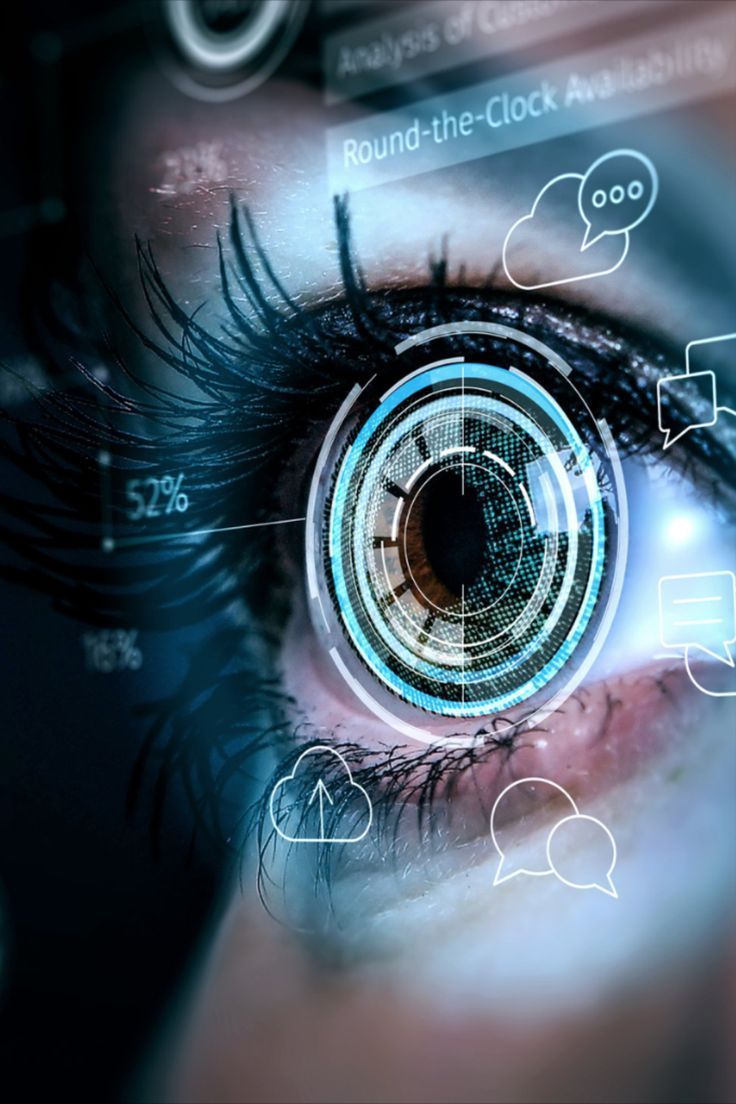- 25 August, 2025
THE FUTURE OF OPTOMETRY: INNOVATIONS IN EYECARE

Optometry is experiencing rapid transformation, driven by technological advancements, changing patient needs, and evolving healthcare landscapes. These advancements are transforming eye care, making it safer, more efficient, and globally accessible. Understanding these emerging trends is crucial for a successful and impactful practice.
ARTIFICIAL INTELLIGENCE (AI)
One of the most significant new trends in optometry is the integration of cutting-edge technology into eye care practices. Artificial intelligence (AI) is revolutionizing diagnostic procedures, enabling more accurate and early detection of eye diseases. AI-powered technologies can analyze retinal images, visual fields, and other diagnostic data with remarkable precision, often identifying subtle changes that might be omitted by optometrists. They also improve surgeon training and support post-operative monitoring to predict complications.
EYE TRACKING TECH
Eye tracking technology is a cutting–edge innovation that monitors where and how our eyes move. By capturing this data, it helps us understand what grabs our attention on digital screens. This technology transforms various fields, making digital interactions more intuitive and user-friendly. Eye tracking also plays a key role in improving digital designs and Virtual Reality, enhancing accessibility for people with disabilities, enabling hands-free control of devices, and allowing users to navigate and communicate with their eyes.
SMART GLASSES
Smart glasses are revolutionizing eye care by blending advanced technology with stylish design; featuring augmented reality (AR) for navigation and interactive experiences, they go beyond traditional eyewear. These devices offer personalized solutions like adaptive lenses that adjust to light and tools to alleviate digital eye strain. Innovations such as AI-driven diagnostics and real-time vision enhancement for the visually impaired are also emerging.
INTEGRATIVE AND PREVENTIVE EYECARE
There
is a growing recognition of the connection between eye health and overall
health. Optometrists increasingly play a role in detecting systemic diseases
through comprehensive eye examinations. Conditions such as diabetes,
hypertension, and even certain neurological disorders can often be first
detected during routine eye exams. This trend
towards integrative care means there will be a need for eye care professionals
to have a broader understanding of general health and be prepared to
collaborate more closely with other healthcare professionals. Preventive eye
care is also gaining importance, with a focus on lifestyle factors that impact
eye health, such as nutrition, exercise, and protection from harmful
environmental factors.
TELEMEDICINE
Telemedicine is another technological trend that’s rapidly gaining traction in optometry. Remote eye examinations and consultations are becoming increasingly sophisticated, allowing optometrists to reach patients in underserved areas or those with mobility issues. While hands-on examinations remain crucial, telemedicine is expanding access to eye care and changing the way optometrists interact with their patients.
PERSONALISED VISION
CARE
Advancements in genetics
and biomarker analysis are paving the way for more personalized approaches to
eye care. In the future, optometrists may be able to tailor treatments and
preventive strategies based on a patient’s genetic profile and individual risk
factors. This approach also extends to vision correction, with custom-designed
contact lenses and specialized refractive surgeries becoming more commonplace.
The aging population in many countries is also driving a trend toward specialized care for age-related eye conditions. Optometrists will likely see an increased demand for expertise in managing conditions such as presbyopia, age-related macular degeneration, and glaucoma in the future.
ENVIRONMENTAL AND
PUBLIC HEALTH
The effect of environmental factors on eye health is
becoming an increasingly important area of great concern. Issues such as
extended screen time, exposure to blue light, and the effects of climate change
on eye health are emerging as significant concerns. It is important to be
versed in addressing these cases, rendering guidance on digital eye strain,
protective eyewear, and strategies for maintaining good eye health in changing
environmental conditions.
The future of optometry is dynamic and full of potential. As the field continues to evolve, the need to be adaptable, technologically savvy, and committed to lifelong learning cannot be overemphasized. MetroEyes is committed to integrating advanced technologies, expanding the scope of practice, focusing on integrative and preventive care, personalized treatment approaches, and attention to environmental and public health issues that will shape optometry and eyecare in the coming years.
